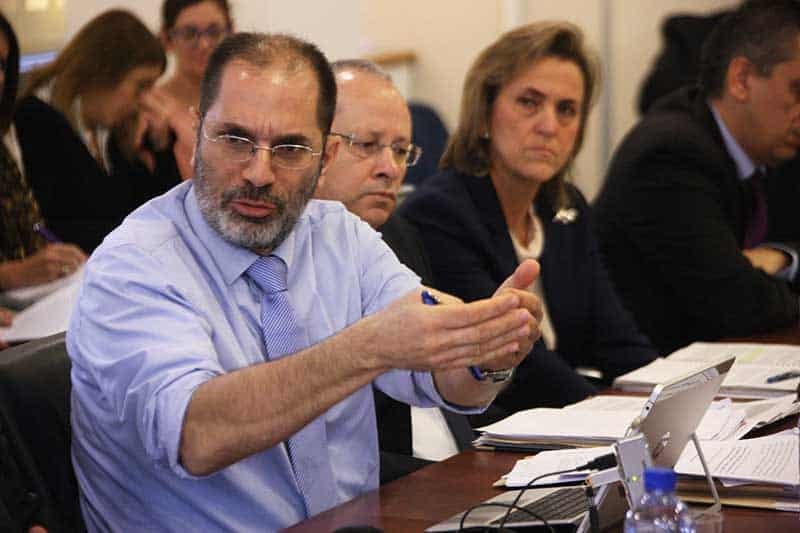Many people are of the view that because the auditor-general has battled corruption and commendably exposed scandals and irregularities in the public sector, he has earned the right to carry out his official responsibilities in any way he likes. He can overstep the boundaries of his authority whenever he chooses, issuing reports about matters that are not in the remit of the audit office without anyone daring to challenge him. The thinking seems to be that because he is widely considered to be a force for good, he should have a carte blanche.
There are times, however, when the audit office’s public pronouncements are a violation of the constitution. On Wednesday, immediately after a report appeared in the press about the opinion given by the Legal Service on the two government bills dealing with multiple pensions and the retirement age of officials, Odysseas Michaelides issued a long-winded public statement criticising this opinion. He also predicted that if the government’s bills were approved as they were, they would be overturned by courts.
Worse still, he claimed that the government did not want to tackle the issue of public employees collecting a state pension while serving as a state official. “We consider it obvious that the government does not want to solve the problem,” the audit office said in its statement; it stopped short of saying this was because the president of the republic was collecting a state pension while serving, but he may as well have said that. Is it really in the powers of the auditor-general to attribute motives to a government decision, implying that it was behaving unethically? Does he have any concrete proof to back this claim.
A newspaper writer, a social media commentator, a politician are entitled to express their personal opinions, but a state official needs to be objective and deal with facts. More importantly he also has an obligation to show respect for other state services. In this case, the Legal Service, which is the legal advisor of the state, gave its opinion on two bills prepared by the government. The audit office has no authority, nor expertise, to interfere and publicly declare the advice given by the Legal Service wrong. There is no provision in the constitution, which Michaelides often cites when it suits him, that gives the authority to the audit office to decide whether the opinion of the Legal Service is correct? Nor is there any provision allowing the audit office to give legal opinions to the government.
Whenever a politician questions actions by the audit office, Michaelides threatens to report them to the international auditors’ association for undermining its independence. But he has no problem interfering in the work of the Legal Service, not only undermining its independence, but also publicly questioning its competence and knowledge of the law and implying that the engineers and accountants of his office are better suited to advise the government on legal issues than trained lawyers.
Michaelides may be right in his analysis of the two bills, but he has to understand that the auditor-general has no constitutional authority to pass judgement on the legal opinions issued by the Legal Service to the government.







Click here to change your cookie preferences